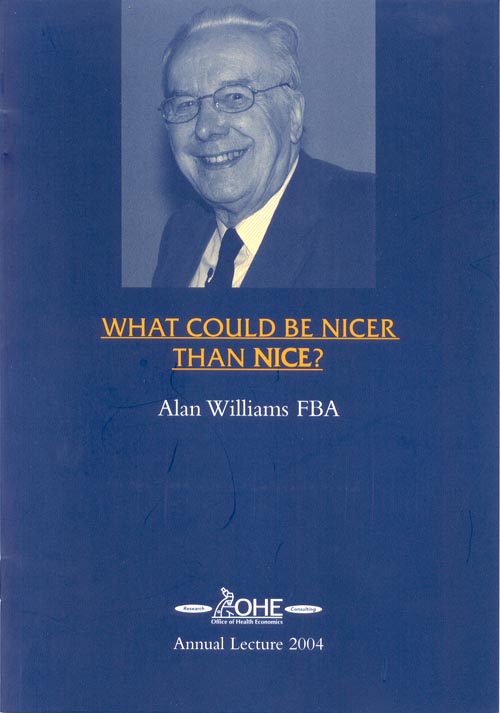Sign up to our newsletter Subscribe
Understanding societal preferences for priority by disease severity in England & Wales

The National Institute for Clinical Excellence is the closest anyone has yet come to fulfilling the economist’s dream of how priority-setting in health care should be conducted. It is transparent, evidence-based, seeks to balance efficiency with equity, and uses a cost-per-QALY benchmark as…
The National Institute for Clinical Excellence is the closest anyone has yet come to fulfilling the economist’s dream of how priority-setting in health care should be conducted. It is transparent, evidence-based, seeks to balance efficiency with equity, and uses a cost-per-QALY benchmark as the focus for its decision-making. What more could anyone ask for? Well, experience has taught me that it is not uncommon for an-economist’s-dream-come-true to be seen as a nightmare by everyone else. After all what practical person, outside the rarified world of academic health economics, would waste time and energy pursuing the elusive will-o’-the-wisp of creating for the NHS a comprehensive framework for healthcare prioritisation, underpinned by an explicit set of ethical and rational values to allow the relative costs and benefits of different areas of NHS spending to be comparatively assessed in an informed way? The answer is…the House of Commons Select Committee on Health, whose words are those italicised above. And NICE would not have been born had not some influential person also had that vision in mind.
But it is an extraordinarily difficult task, and NICE is still in its infancy, and on a very steep learning curve, because as a pioneering institution it has no well-trodden path to follow. It would be amazing if it managed to get everything right straight away. The purpose of the lecture was to argue the case for NICE to move, in the next 5 years, in particular directions.
What Could be Nicer than NICE?
Williams, A.
(2004) What Could be Nicer than NICE?. OHE Monograph. Available from https://www.ohe.org/publications/what-could-be-nicer-nice/